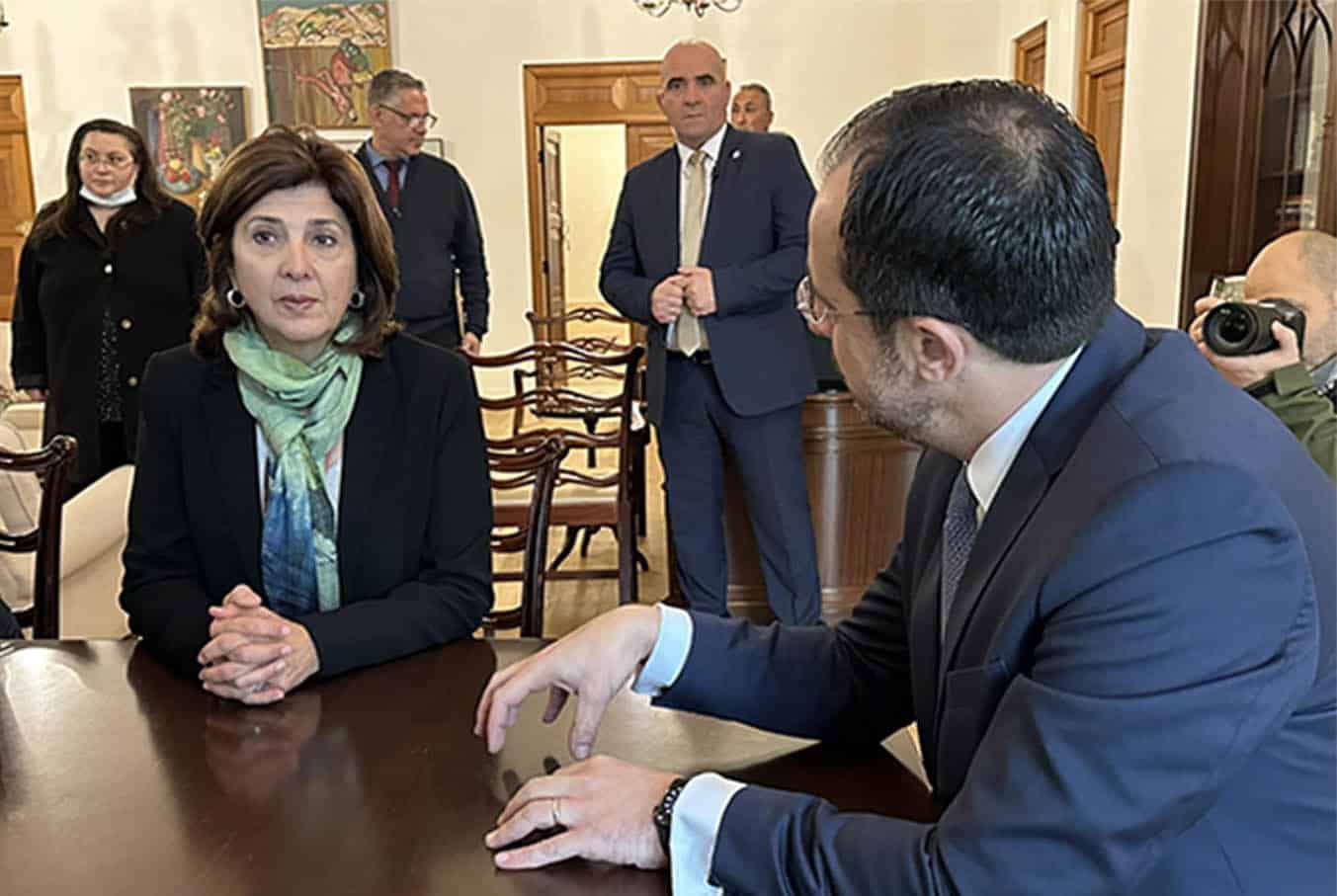Our View: An eloquent explanation of why attempt to bring the two sides together is doomed to fail

The farewell letter by the UN secretary-general’s personal envoy Maria Angela Holguin did not deal with the specifics of her failed mission. These would probably be included in the report she will submit to Antoni Guterres on Wednesday. Instead, she analysed the general reasons why she believed the Cyprus problem had never been solved, reasons that were as valid today as they were 10, 20 and 30 years ago.
“Too many years have been spent in confrontation and discrimination; too much time blaming the other side,” she wrote. “The status quo has created a greater distance and a lack of knowledge of the other, and this grows with each passing day.” While it was important “to recognise and understand the past”, she wrote, “this past should not be an insurmountable obstacle to move towards a solution that benefits all Cypriots, including those who believe they do not need to change.”
These are perfectly legitimate points – some would say, statements of the obvious – but how can this fixation with the past be overcome, especially when it is all-pervasive, taught at schools, relentlessly reproduced by the media and pushed by politicians who have built successful careers on it? Nobody seems willing to “look at the future in a healthier and more hopeful way”, as Holguin advocated, even if “they could reconcile with their history of pain.”
Holguin also looked at insights in neuroscience, which, she said, broadened her understanding “of some behaviours in Cyprus”. These neuroscientific insights suggest that “the brain perceives reality by merging past belief with past experiences” and these “beliefs are deeply ingrained in the brain, which loses the ability to assimilate new information.” Presumably, the new information relates to reconciliation and a common future that will benefit all Cypriots.
This is how an intellectual would try to explain the failure of the two sides to reach an agreement on a common future, but there are no practical suggestions on how the fixation with the past would cease being an obstacle to progress. Holguin, in her open letter, asked “all Cypriots to encourage and pressure their leaders to work for a better and secure future”, implying that the leaders were part of the problem. “The leaders must show will and decisiveness for real progress,” she concluded.
The leaders are not operating in a vacuum. If they are not showing the will for real progress, it is because they can. There is no public pressure on them to display the necessary decisiveness for real progress. There is no political cost for them, because most people are content with a status quo, which according to President Christodoulides was unsustainable.
In the end, Holguin’s letter eloquently explained that any attempt at bringing the two sides together is doomed to failure. The mass re-education programme that would make people put the past behind them and look to the future is unlikely to take place any time soon.
